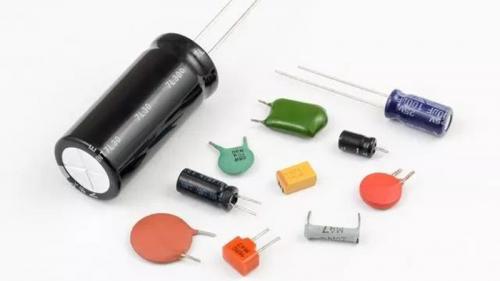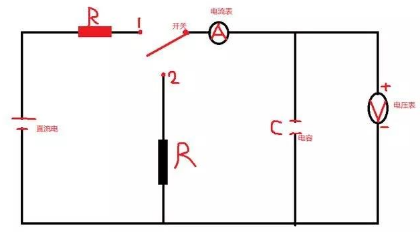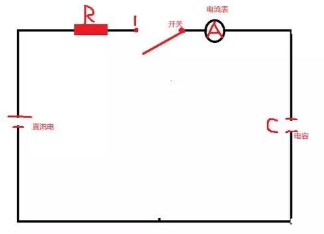Read the basic knowledge of capacitors and capacitors
Time:2022-02-15
Views:2295
I believe everyone is familiar with capacitance. Even if you haven‘t seen it, you have heard it. In today‘s life, capacitance is one of the essential components, ranging from a circuit to a small electronic motherboard, especially for the start of single-phase motor. What is capacitance? Before that, let‘s know two terms, capacitor and capacitor.
Capacitance refers to the charge storage under a given potential difference. A capacitor is one in which the charge will be forced to move in the electric field. When there is a medium between the conductors, it will hinder the charge movement and make the charge accumulate on the conductor; The most common example of cumulative charge storage is two parallel metal plates.

From the definition, I feel that there is no big difference between capacitance and capacitor. The general meaning is that it can store charge. Whether it is a capacitor or a capacitor, it is used to store electricity. If electricity is compared to water, the capacitor or capacitor is equivalent to a pool. If you understand it in this way, it‘s not wrong, but since they are the same, why distinguish them. Where they are different, capacitors are naturally formed and pure natural, while capacitors are made manually. It‘s like a pool. One was formed naturally. There was a pit there. Later, the accumulated water became a pool, and the other was dug manually. Therefore, we all use capacitors in our life, but they are customarily called capacitors, so the later capacitors are actually capacitors, but we still call them capacitors. Just understand this. There is no need to distinguish whether they are capacitors or capacitors.
From the above figure, we can see that the capacitance is composed of two conductors separated by insulating materials (there is no conductor between metal plates, which are filled with insulating materials). The two metal plates are called pole plates, which are connected with the circuit. The insulating material can be air, paper, oil and other insulating materials. There are capacitances between wires of high-voltage wires, between wires and the earth, etc., but they are naturally formed and have no utilization value. This also shows that the capacitance does not have to be separated by a metal plate, which hinders the charge movement and makes the charge accumulate on the conductor;
The accumulation and storage of charge will form a capacitor. For example, if you cut an electrified wire, a capacitance will be formed between the fractures, but it is very small, because air is also an insulating material, and both ends of the fracture of the wire are equivalent to the metal plate in the figure above.

The above figure is an experimental diagram of physics in junior middle school. I don‘t know if you have any impression. When the capacitor is connected with the DC power supply, when the switch is closed to 1, you can find that the
reading of the voltmeter gradually increases from zero to the voltage of the power supply, and the reading of the ammeter decreases to zero. This process is called charging.
This is because when it is turned on and closed to 1, all the current flows to capacitor C. when the DC power is out, the ammeter also changes to zero, which is equivalent to that the DC power supply gives all the power to capacitor C.
Then disconnect the switch from 1 and close 2. At this time, it will be found that the reading of the voltmeter gradually decreases to zero. The reading of the ammeter initially increases and then gradually decreases to zero. This process is called discharge. This is because the capacitor begins to discharge when it is closed to 2, so the ammeter will have readings. When the capacitor is discharged, the voltmeter and ammeter will naturally be zero.
From the above, we can see that when the capacitor is connected with DC, there is charging current in the circuit. When the capacitor is discharged, there is discharging current in the circuit. In other cases, there is no current in the circuit. This shows that the capacitor cannot pass through DC and has the function of isolating DC.

Capacitors have positive and negative poles, so they must be connected with positive and negative poles. If they are connected reversely, they will explode. Whether they will kill people depends on the size of the capacitor. When I used to work on the computer motherboard, a very small capacitor exploded when it was connected reversely. Of course, people certainly didn‘t explode. Just like setting off a small firecracker, they didn‘t feel anything except the buzzing of their ears. If they were blown up, Xiaobian might not have the opportunity to share it with you now.
Capacitors have many functions, such as power filtering, signal filtering, signal coupling, resonance, filtering, reactive power compensation and so on.

If you don‘t understand why you can‘t pass through DC, you can think about it from the above figure. When the switch is closed with 1, the whole line has formed a loop, but the DC can only flow to capacitor C and then be stored, but it can‘t come out of capacitor C and return to the power supply. Therefore, the capacitor can not be connected to DC and has the function of isolating DC.
the capacitor is connected to the AC power supply, because the size and direction of the AC voltage are constantly changing, the capacitor will be charged and discharged repeatedly. At this time, there will be charging and discharging current in the circuit. Therefore, one function of the capacitor is to block the direct flow of AC.
Capacitance is expressed in C, and the unit is farad (f). There are also micro method and skin method. When selecting capacitors, it is not the bigger the better, but according to the demand, mainly depending on the capacitance and withstand voltage. Capacitance is easy to understand, that is, its maximum capacity, and withstand voltage refers to the maximum voltage allowed for capacitance, that is, it can withstand the maximum voltage. If the maximum voltage is too high, the insulating material will break down and cause damage to the capacitor. For example, the maximum withstand voltage of a capacitor is 220V, but you can‘t use it at 380V.
the capacitor is connected to the AC power supply, because the size and direction of the AC voltage are constantly changing, the capacitor will be charged and discharged repeatedly. At this time, there will be charging and discharging current in the circuit. Therefore, one function of the capacitor is to block the direct flow of AC.
Capacitance is expressed in C, and the unit is farad (f). There are also micro method and skin method. When selecting capacitors, it is not the bigger the better, but according to the demand, mainly depending on the capacitance and withstand voltage. Capacitance is easy to understand, that is, its maximum capacity, and withstand voltage refers to the maximum voltage allowed for capacitance, that is, it can withstand the maximum voltage. If the maximum voltage is too high, the insulating material will break down and cause damage to the capacitor. For example, the maximum withstand voltage of a capacitor is 220V, but you can‘t use it at 380V.
Capacitors have positive and negative poles, so they must be connected with positive and negative poles. If they are connected reversely, they will explode. Whether they will kill people depends on the size of the capacitor. When I used to work on the computer motherboard, a very small capacitor exploded when it was connected reversely. Of course, people certainly didn‘t explode. Just like setting off a small firecracker, they didn‘t feel anything except the buzzing of their ears. If they were blown up, Xiaobian might not have the opportunity to share it with you now.
|
Disclaimer: This article is transferred from other platforms and does not represent the views and positions of this site. If there is infringement or objection, please contact us to delete. thank you! |











